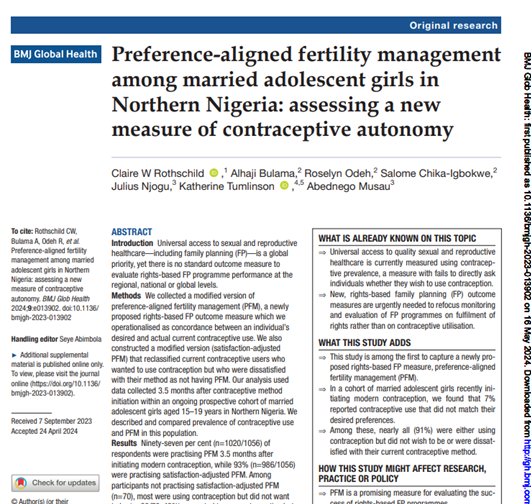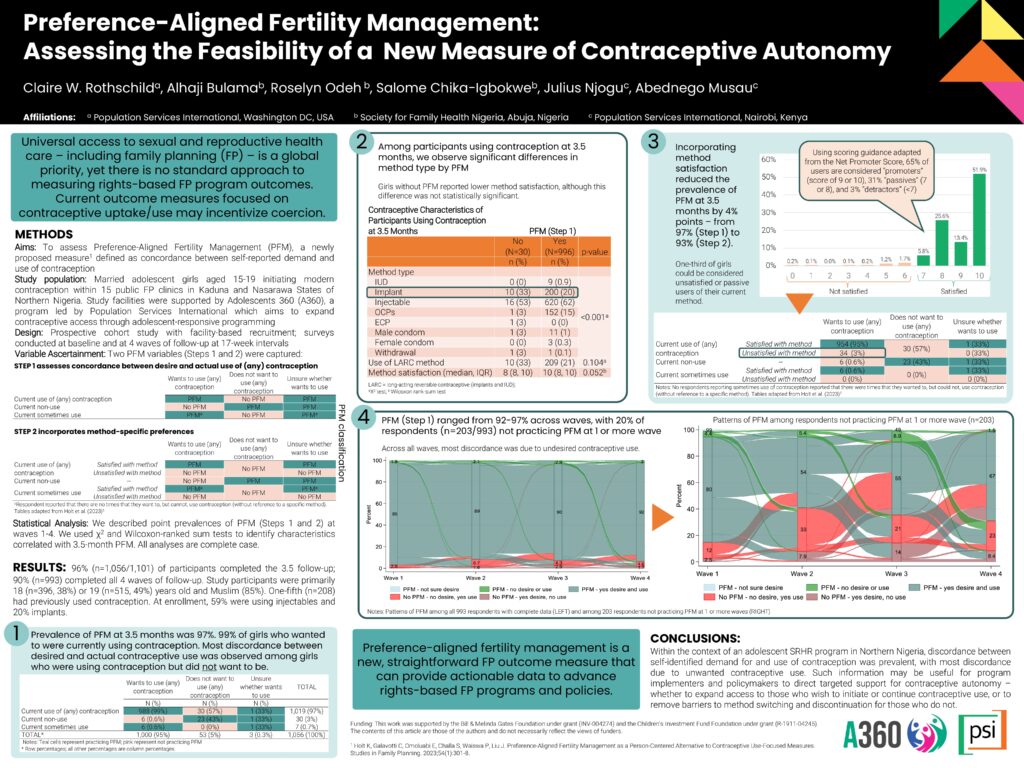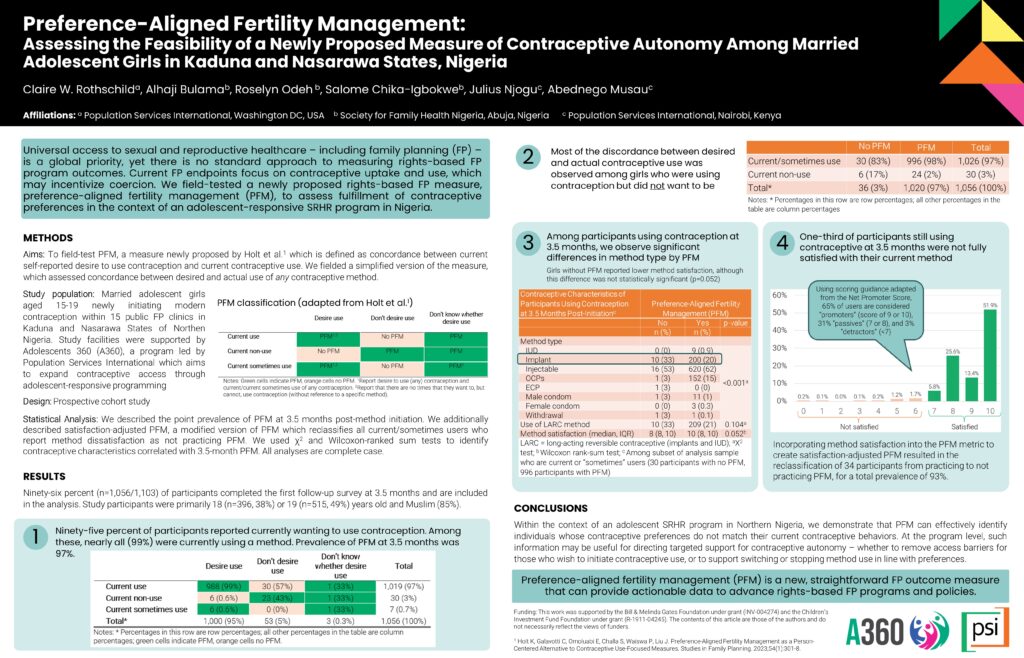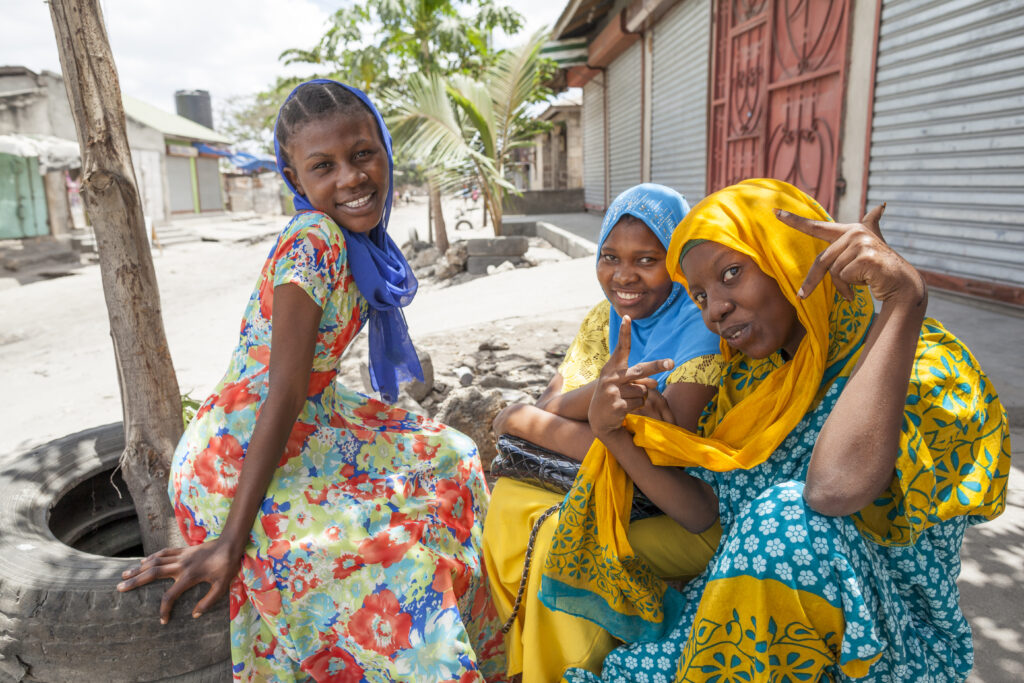A360 Logic Model

This logic model lays out the specific activities and associated outcomes that A360 aims to pursue in its current investment phase (2016-2020). These activities and outcomes align with A360’s technical strategy pillars around adaptation, institutionalization, and learning.
Preference-aligned fertility management among married adolescent girls in Northern Nigeria: assessing a new measure of contraceptive autonomy

In this article, published in BMJ Global Health, we reflect on the value of utilizing a new measure of contraceptive autonomy through its testing in A360’s continuation cohort study in northern Nigeria. Original article published via BMJ. Abstract: Introduction Universal access to sexual and reproductive healthcare—including family planning (FP)—is a global priority, yet there is […]
Preference-Aligned Fertility Management: Assessing the Feasibility of a New Measure of Contraceptive Autonomy

Authors: Claire W. Rothschild, Alhaji Bulama, Roselyn Odeh, Salome Chika-Igbokwe, Julius Njogu, Abednego Musau This poster presentation, shared during the PAA 2024 conference, shares the results of A360’s assessment of Preference-Aligned Fertility Management (PFM), a newly proposed measure defined as concordance between self-reported demand and use of contraception. This was assessed during A360’s continuation cohort […]
Determinants of high contraceptive self-efficacy among adolescent girls (15-19) from four counties in Kenya

This poster presentation, shared at the FIGO World Congress in 2023, describes the findings from a study conducted by A360 in four counties in Kenya on adolescent girls’ perceived social support, contraceptive self-efficacy, and perceived agency in reproductive decision-making.
Preference-aligned fertility management: Assessing the feasibility of a newly proposed measure of contraceptive autonomy among married adolescent girls in Kaduna and Nasarawa states, Nigeria

This poster presentation, shared at the Society for Family Planning (SFP) meeting in 2023 showcased results from field-testing of preference-aligned fertility management (PFM), a measure newly proposed by Holt et al.1 which is defined as concordance between current self-reported desire to use contraception and current contraceptive use. We fielded a simplified version of the measure, […]
Effect and cost-effectiveness of human-centred design-based approaches to increase adolescent uptake of modern contraceptives in Nigeria, Ethiopia and Tanzania: Population-based, quasi-experimental studies
By Catarina Krug et al. Around half of adolescent pregnancies in low- and middle-income countries are unintended, contributing to millions of unsafe abortions per year. Adolescents 360 (A360), a girl-centred initiative, aimed to increase voluntary uptake of modern contraceptives among adolescents in Nigeria, Ethiopia and Tanzania. This article, published in Plos Global Public Health presents […]
Management Response to A360 External Evaluation (2016-2020)
A360’s donors commissioned an external evaluation in 2016 to independently evaluate and distill lessons from the program. This evaluation was comprised of three evaluations in one: a process evaluation, an outcome evaluation, and a cost-effectiveness analysis. This management response, compiled by A360, responds to the results of this external evaluation. The goal of this response […]
Implementing adaptive youth-centered adolescent sexual reproductive health programming: learning from the Adolescents 360 project in Tanzania, Ethiopia, and Nigeria (2016-2020)

This technical brief captures what we learned and how we pivoted following our external 2018 mid-term evaluation.
